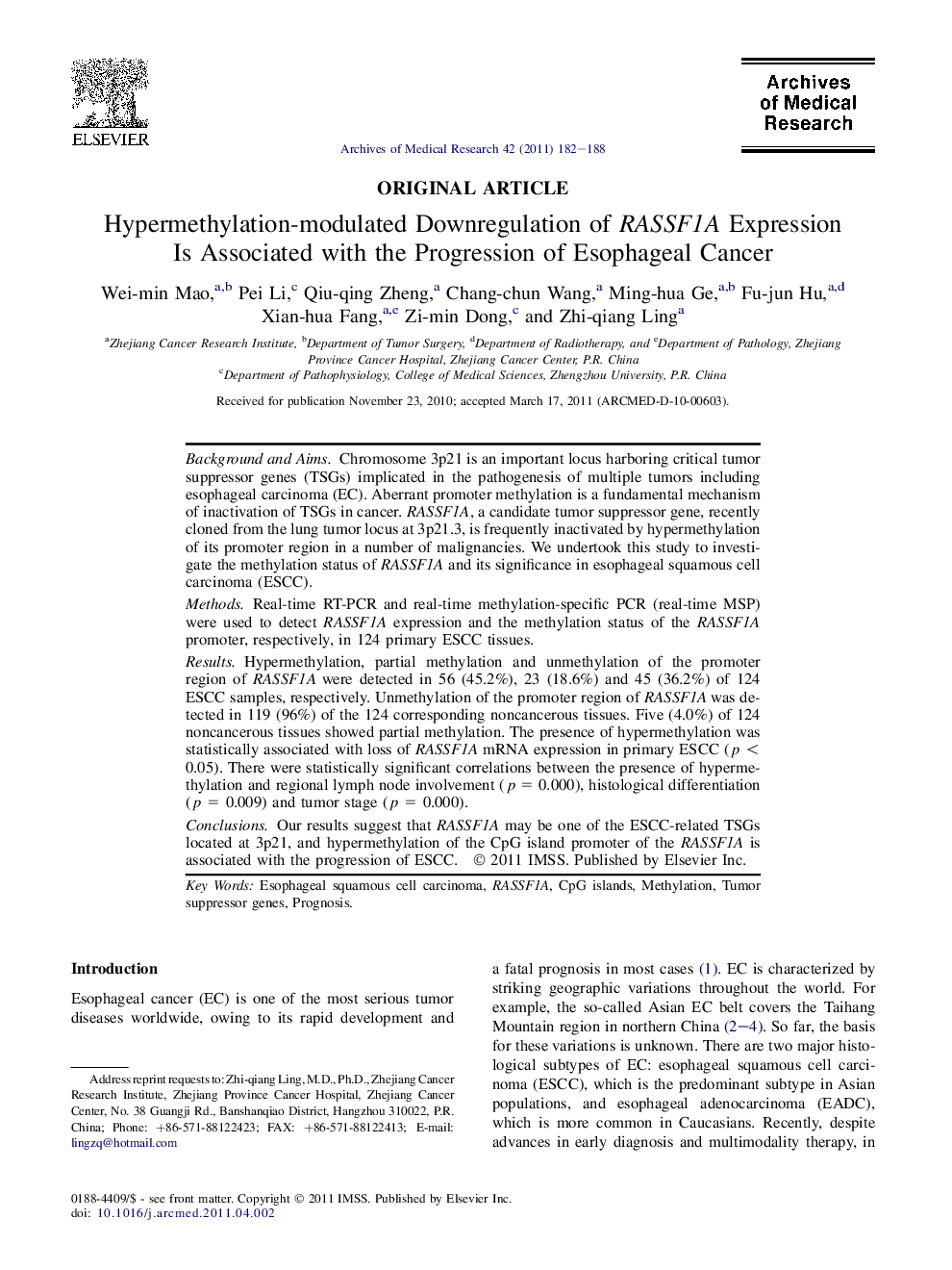| Article ID | Journal | Published Year | Pages | File Type |
|---|---|---|---|---|
| 3446779 | Archives of Medical Research | 2011 | 7 Pages |
Background and AimsChromosome 3p21 is an important locus harboring critical tumor suppressor genes (TSGs) implicated in the pathogenesis of multiple tumors including esophageal carcinoma (EC). Aberrant promoter methylation is a fundamental mechanism of inactivation of TSGs in cancer. RASSF1A, a candidate tumor suppressor gene, recently cloned from the lung tumor locus at 3p21.3, is frequently inactivated by hypermethylation of its promoter region in a number of malignancies. We undertook this study to investigate the methylation status of RASSF1A and its significance in esophageal squamous cell carcinoma (ESCC).MethodsReal-time RT-PCR and real-time methylation-specific PCR (real-time MSP) were used to detect RASSF1A expression and the methylation status of the RASSF1A promoter, respectively, in 124 primary ESCC tissues.ResultsHypermethylation, partial methylation and unmethylation of the promoter region of RASSF1A were detected in 56 (45.2%), 23 (18.6%) and 45 (36.2%) of 124 ESCC samples, respectively. Unmethylation of the promoter region of RASSF1A was detected in 119 (96%) of the 124 corresponding noncancerous tissues. Five (4.0%) of 124 noncancerous tissues showed partial methylation. The presence of hypermethylation was statistically associated with loss of RASSF1A mRNA expression in primary ESCC (p <0.05). There were statistically significant correlations between the presence of hypermethylation and regional lymph node involvement (p = 0.000), histological differentiation (p = 0.009) and tumor stage (p = 0.000).ConclusionsOur results suggest that RASSF1A may be one of the ESCC-related TSGs located at 3p21, and hypermethylation of the CpG island promoter of the RASSF1A is associated with the progression of ESCC.
